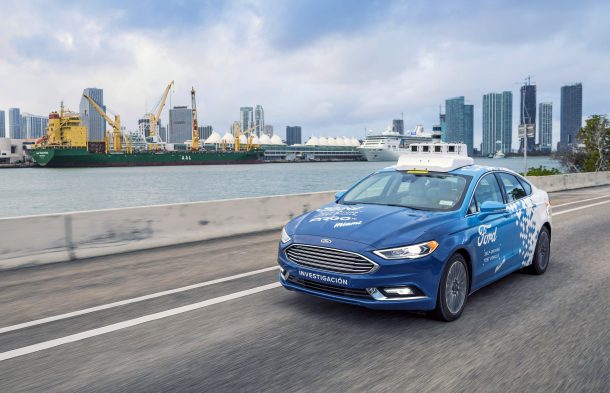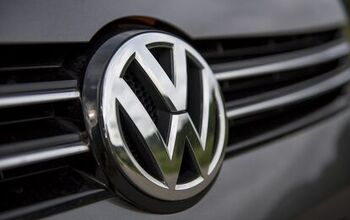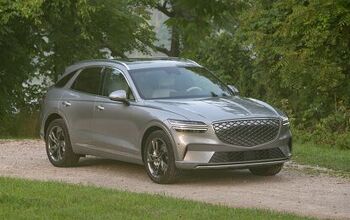Volkswagen - and With It, Ford - Secures Self-driving Deal

U.S. self-driving startup Argo AI has completed a deal with Volkswagen AG on self-driving vehicle technology, fulfilling VW’s wishes for a secure and affordable source of gee-whiz gadgetry for future mobility solutions.
The deal, valued at $2.6 billion, will see VW fork over a cool billion while folding its Autonomous Intelligent Driving team into Argo AI’s operations. The automaker’s alliance partner, Ford, pledged $1 billion (over five years) to the startup in 2017, before last year’s tie-up with the German automaker.
Together, VW and Ford plan to use self-driving hardware and software suites developed by Argo AI to fuel its mobility ambitions in North America and Europe. A tentative deal was inked last July.
The Pittsburgh-based startup released a statement from CEO Bryan Salesky and its European arm’s veep, Reinhard Stolle, claiming “with the close of Volkswagen AG’s investment, we become a global company.”
“This news not only solidifies our well-capitalized position, but differentiates us as the only self-driving technology platform company with partnerships and commercial agreements for deployments across the U.S. and Europe,” the two said.
As part of the deal, Ford and VW will receive minority stakes in Argo AI.
“Working together with Argo AI positions both Ford and Volkswagen to better serve our future customers while improving cost and capital efficiencies,” John Lawler, CEO of Ford Autonomous Vehicles LLC and vice-president of the automaker’s mobility partnerships, said in a Medium post. “While the uncertainty of today’s business environment has created challenges for partnerships and investments in the self-driving space, this collaboration remains on track and will be a positive development for everyone involved
Ford aims to tap into the potential riches of autonomous ride-hailing and other fleet services by releasing a fleet of its own self-driving vehicles. Detroit rival Fiat Chrysler already has a plan and a fleet underway via its partnership with Waymo, while General Motors has its Honda-backed Cruise LLC venture.
“Building a safe, scalable and trusted self-driving service, however, is no small task,” Lawler wrote. “It’s also not a cheap one. We’ve committed to spending more than $4 billion through 2023 on the development of our self-driving service. A large part of this investment is dedicated to developing the self-driving system. With Volkswagen’s investment in Argo AI, we will now share the cost of developing Argo AI’s technology.”
The Blue Oval hoped to have its self-driving fleet in operation by 2021, but the arrival of the pandemic put the kibosh on those plans. The fleet is now expected to hit the road in 2022.
[Image: Ford]

More by Steph Willems
Latest Car Reviews
Read moreLatest Product Reviews
Read moreRecent Comments
- Marcr My wife and I mostly work from home (or use public transit), the kid is grown, and we no longer do road trips of more than 150 miles or so. Our one car mostly gets used for local errands and the occasional airport pickup. The first non-Tesla, non-Mini, non-Fiat, non-Kia/Hyundai, non-GM (I do have my biases) small fun-to-drive hatchback EV with 200+ mile range, instrument display behind the wheel where it belongs and actual knobs for oft-used functions for under $35K will get our money. What we really want is a proper 21st century equivalent of the original Honda Civic. The Volvo EX30 is close and may end up being the compromise choice.
- Mebgardner I test drove a 2023 2.5 Rav4 last year. I passed on it because it was a very noisy interior, and handled poorly on uneven pavement (filled potholes), which Tucson has many. Very little acoustic padding mean you talk loudly above 55 mph. The forums were also talking about how the roof leaks from not properly sealed roof rack holes, and door windows leaking into the lower door interior. I did not stick around to find out if all that was true. No talk about engine troubles though, this is new info to me.
- Dave Holzman '08 Civic (stick) that I bought used 1/31/12 with 35k on the clock. Now at 159k.It runs as nicely as it did when I bought it. I love the feel of the car. The most expensive replacement was the AC compressor, I think, but something to do with the AC that went at 80k and cost $1300 to replace. It's had more stuff replaced than I expected, but not enough to make me want to ditch a car that I truly enjoy driving.
- ToolGuy Let's review: I am a poor unsuccessful loser. Any car company which introduced an EV which I could afford would earn my contempt. Of course I would buy it, but I wouldn't respect them. 😉
- ToolGuy Correct answer is the one that isn't a Honda.


































Comments
Join the conversation
Ford currently has something like $37B in cash (including the latest borrowings): https://finance.yahoo.com/news/ford-hoards-cash-withdraws-profit-163246072.html And plans to drop $4B of that on its "self driving service" during generally tough business conditions [ex. dividend is suspended]. So clearly they are serious about this. Someone should warn them that it's a dead end [if it is] - because plainly they don't view it that way.
I hate to be a wet noodle, but considering the goal for the utopians among us is the replace private vehicle ownership with shared autonomous vehicles, there is a new significant hurdle to consider. How can such vehicles be kept sanitary between rides in a post-covid world? Now that the public knows how fast some novel (or known) infectious disease can spread,a public dependent on autonomous vehicles for nearly every errand will have to contend with their potential as a major vector of disease transmission.